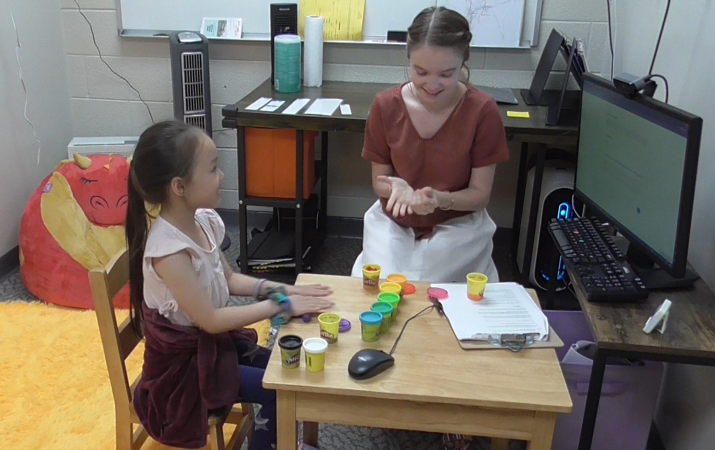The Child Development Research Group (CDRG) is currently comprised of 6 active research laboratories, which examine nearly every aspect of child development from birth through middle childhood.
The five labs study questions like:
-
- How do babies perceive and act in the world?
- How do infants learn language?
- How do attention and memory develop?
- How do children learn to control their behavior and follow rules?
- How does the social environment impact children’s behavior?
We need your help to answer these questions!
ATTENTION, BRAIN, AND COGNITION LAB
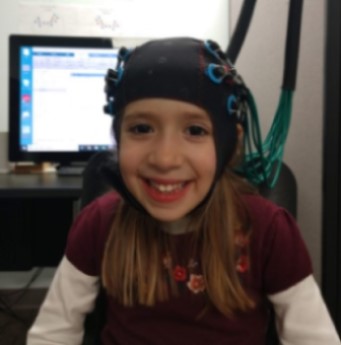
Director: Aaron Buss, Ph.D.
The ABC Lab studies the development of executive function, or how children learn to control their own behavior. Children play games on a large touch-screen television that require them to use rules or solve different types of problems. Children wear a lightweight cap that measures brain activity using harmless infrared light. Sessions usually last about an hour.
Learn More
INFANT PERCEPTION-ACTION LAB
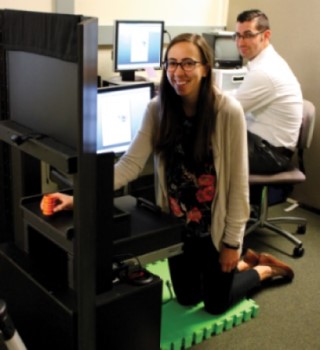
Director: Daniela Corbetta, Ph.D.
The Infant Perception-Action Lab focuses on the development of infants’ perceptual and motor skills. Babies are observed while looking at scenes, at toys, reaching for toys, touching and manipulating them, and in some studies, they are watched as they are crawling or walking toward toys. Sessions typically last less than an hour.
Learn More
INFANT LANGUAGE AND PERCEPTUAL LEARNING LAB
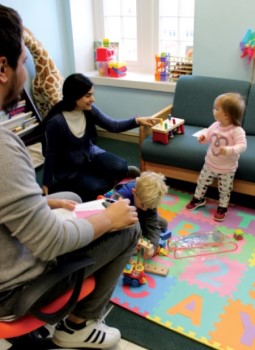
Director: Jessica Hay, Ph.D.
In our lab, we are interested in how young infants begin to make sense of the world around them. Specifically, our research questions address how infants begin to learn about sounds and words in language. Our studies are fun for both infants and parents and only take 10-20 minutes. Infants will get to hear new and interesting sounds while sitting in their parent’s lap.
Learn MoreDEVELOPMENTAL COGNITIVE NEUROSCIENCE LAB
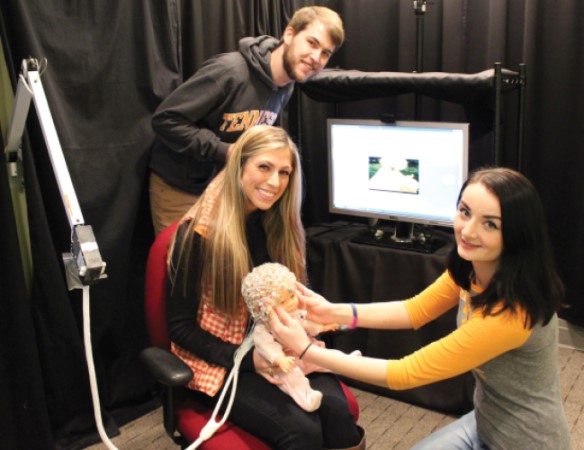
Director: Greg Reynolds, Ph.D.
Research conducted at the lab examines the development of attention and memory in infancy. A typical session lasts less than an hour. Depending on the study, your baby’s brain waves, heart rate, eye movements, and/or looking behavior will be measured while she/he views interesting visual patterns, Sesame Street characters, faces, or objects.
Learn More
INFANT VISUAL COGNITION LAB
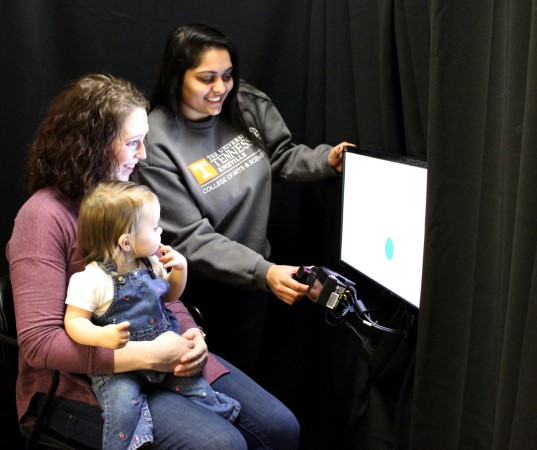
Director: Shannon Ross-Sheehy, Ph.D.
The Infant Visual Cognition Lab (IVC Lab) studies the way infants use their eyes and ears to learn about the world around them. To accomplish this, we will show your infant a colorful series of images or animations while they sit on your lap. Using eye-tracking, it is possible to see exactly what kinds of events are most engaging to your baby, and we can use that information to understand how babies learn best. Sessions typically last 30 minutes or less and are enjoyable for both baby and parents alike.
Learn More
SPATIAL PERCEPTION AND COGNITION LAB
Director: Sarah Lamer, Ph.D.
In our lab, we examine how subtle patterns people encounter every day can reinforce and even challenge social inequities. We integrate social cognition, vision science, and developmental methods to answer questions about the maintenance of power differences among social groups. We draw on various approaches with the goal of designing research questions so that they contribute to scientific knowledge and have clear, broad social benefits.
Learn More
